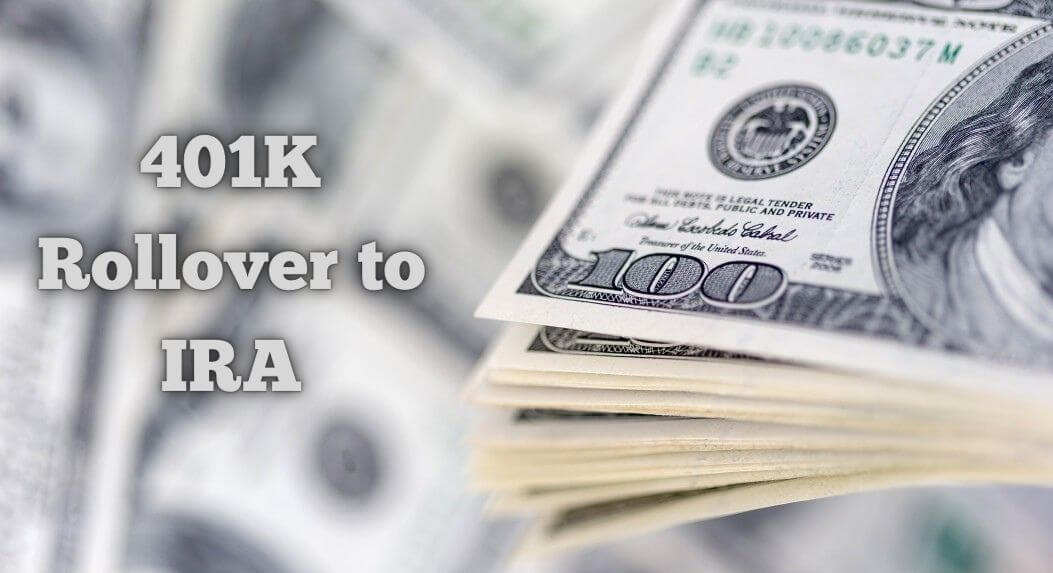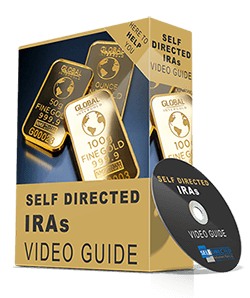If you have changed jobs, it’s important to understand the several options you have with your old 401(k) retirement account. Typically, you have four options:
- You can cash it out
- Leave it as and where it is
- Transfer it into your new employer’s 401(k) plan (if one exists), or
- Roll it over into an individual retirement account (IRA)
If you do not want to pay taxes and other penalties, it’s best to avoid the cashing out option. If you have switched jobs, rolling your 401(k) into an IRA is probably the best option for you.
What is a 401(k) rollover?
A 401(k) rollover is a transfer of funds from an old 401(k) account to an individual retirement account (IRA) or another 401(k).
Rolling Over Your 401(k) to an IRA
IRAs offer a wider array of investment options than 401(k)s. So, when you roll over from 401(k) to an IRA, you have not only better investment choices but also better control over your investments.
Most IRAs allow you to invest in various types of assets, including bonds, stocks, mutual funds, certificates of deposit (CD), real estate investment trusts (REITs), exchange-traded funds, and annuities. And if you set up a self-directed IRA, you can also invest in alternative investments such as physical property, oil and gas leases, and commodities.
If you want to roll over your 401(k) to an IRA, you need to decide whether you should opt for a traditional IRA or a Roth IRA. It is a choice you have to make between paying taxes now or later.
Rollover 401(k) to IRA Tax Consequences
Generally, there are no tax implications when you roll over your 401(k) to an IRA.
You have two options to rollover 401(k) to an IRA: direct or indirect rollover. In a direct rollover, money is directly sent from your old plan into your new IRA. In an indirect rollover, a check is sent to you after withholding 20% of your funds. The withheld funds are taken as a taxable distribution. You are then given 60 days to deposit this money into a new IRA or any other tax-deferred account. If you fail, the entire balance is subject to a 10% early withdrawal penalty, assuming that you are under the age of 59½.
7 Reasons to Roll Over Your 401(k) to an IRA
- Wide range of investment options: A 401(k) is limited to only a few investment options, including mutual funds. But with an IRA, not just mutual funds, a host of other types of investments, including individual stocks, bonds, exchange-traded funds (ETFs), etc., are made available to you.
- Possibility of a Roth account: You can roll over an IRA into a Roth IRA. With a Roth IRA, your contributions are taxable, and your withdrawals are tax-free. You are also not required to take the mandatory required minimum distributions at age 72.
- Lower fees and costs: If done correctly, there should be few, or no costs associated with rolling over a 401(k) to an IRA.
- Better communication: Having access to your retirement account information is important. But if you leave your 401(k) with your old employer, it may get harder for you to get in touch with an advisor or administrator for information about your plan. When you roll over your old plan into an IRA, you have more control and easy access to information.
- Fewer rules: 401(k) rules are complicated as each company has leeway on how they set up the plan. In contrast, IRA regulations are pretty standard. An IRA with one broker follows mostly the same rules as with any other broker.
- Cash incentives: Many brokers may offer cash incentives to bring your retirement money into their company. If it’s not cash, they could offer free trades as well.
- Estate planning advantages: Your 401(k) money is usually paid as a lump sum to your beneficiary upon your death, making them vulnerable to income and inheritance tax headaches. Although inheriting IRAs has its regulations, unlike 401(k), they offer more payout options.
When you switch jobs, you need to consider these three things to determine whether a 401(k) rollover is right for you:
- Fees
- The rules of the 401(k) plan at your old or new job
- Range of quality investments available with an IRA
If you need help in deciding whether a 401(k) rollover is right for you, consult us for expert advice.
Need assistance organizing your finances?
FAQs
Can you roll over a 401(k) to an IRA without penalty?
You can transfer assets from a 401(k) to an IRA without incurring any fees, but you have to deposit your 401(k) funds within 60 days. However, if you roll over funds from a traditional 401(k) to a Roth IRA, there will be tax consequences.
What are the advantages of rolling over a 401(k) to an IRA?
Rolling over money from a 401(k) to an IRA gives you access to more investment possibilities than are normally offered in workplace 401(k) plans. Additionally, you might be able to avoid account management fees that some 401(k) plans apply.
Got More Questions?

Rick Pendykoski is the owner of Self Directed Retirement Plans LLC, a retirement planning company based in Goodyear, AZ. He has over three decades of experience working with investments and retirement planning, and over the last ten years has turned his focus to self-directed ira accounts and alternative investments. If you need help and guidance with traditional or alternative investments, call him today (866) 639-0066.




